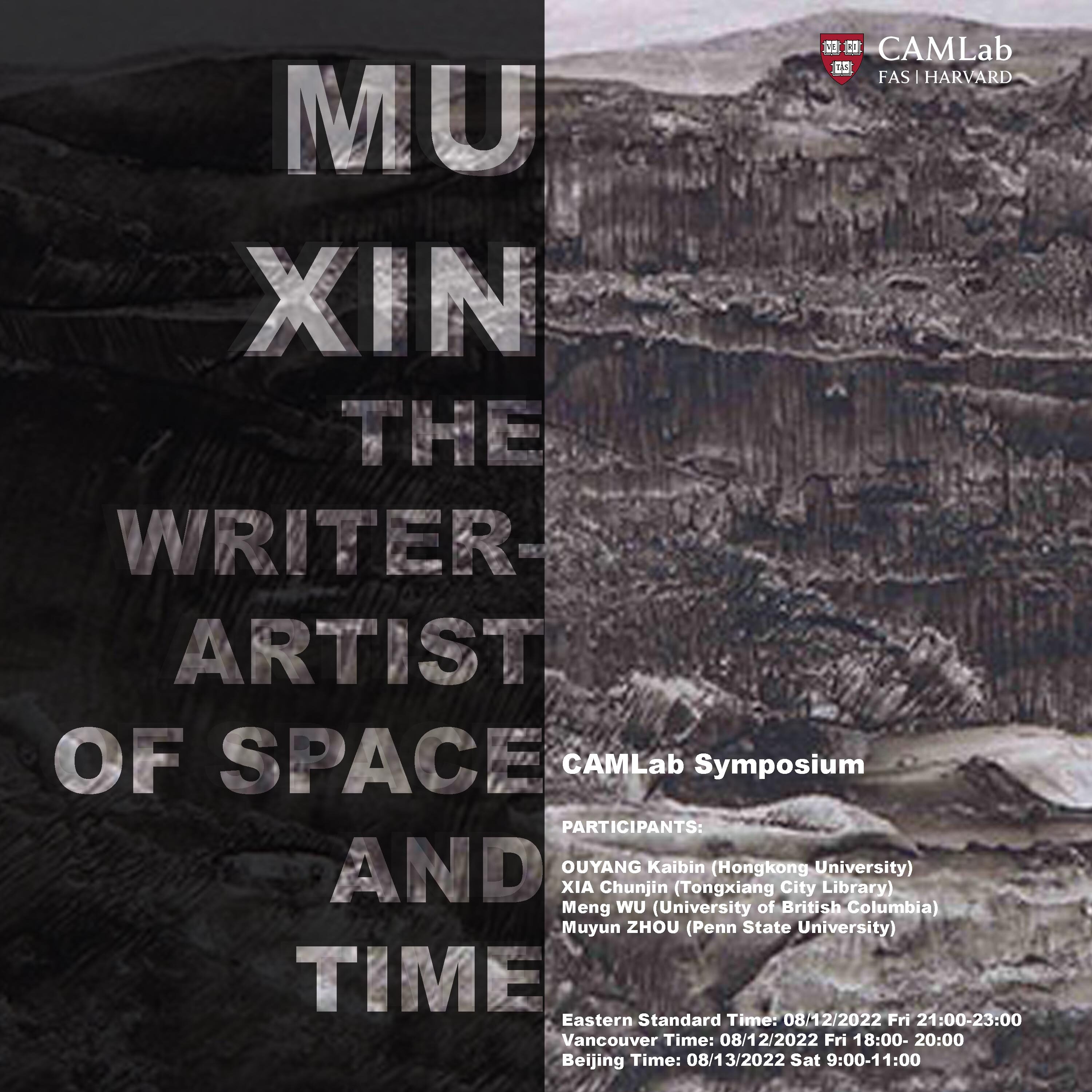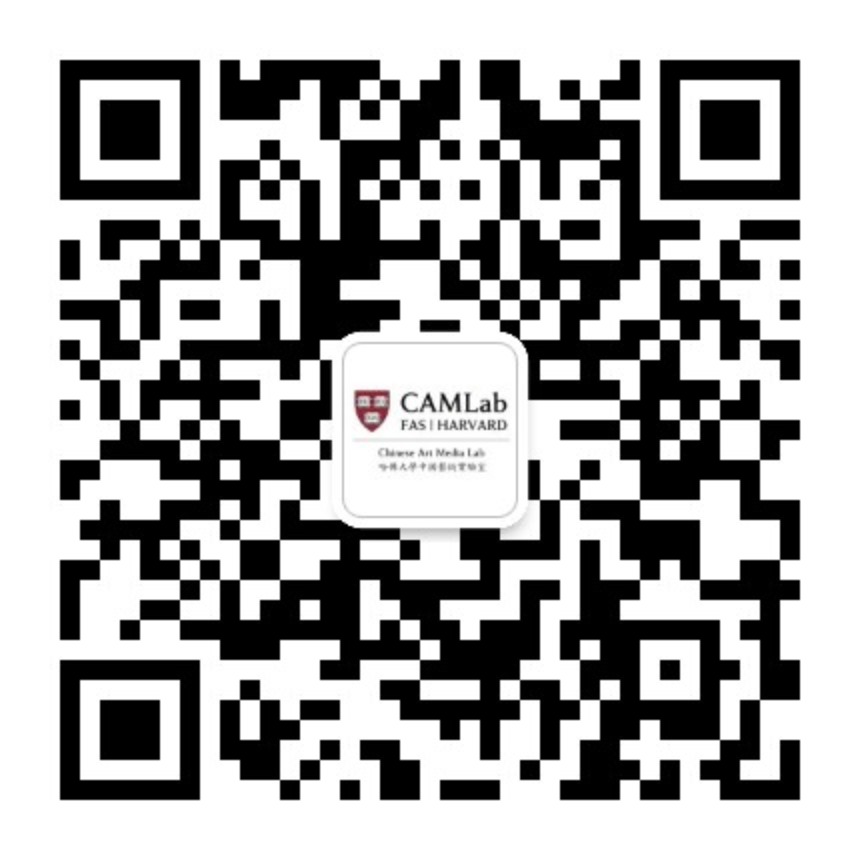August 12, 2022, 9:00 PM EST
Ouyang Kaibin
received his Ph.D. from The University of Hong Kong (2020), with a dissertation on Mu Xin, entitled as “Icarian-Artist: The Romantic Subjectivity of Mu Xin”. Dr. Ouyang also writes on other canonical figures of modern Chinese romanticism, such as Xu Zhimo and Shen Congwen. Dr. Ouyang has published in journals such as Chinese Modern Literature, Tsing Hua Journal of Chinese Studies, Journal of Oriental Studies, and Journal of the History of Ideas in East Asia and so on. His Mu Xin monograph is awaiting publication with the Hong Kong Commercial Press.
Currently lecturing at the School of Chinese, HKU, Dr. Ouyang was previously a visiting scholar at the Institute of Chinese Literature and Philosophy, Academia Sinica (2018-2019), and Summer Fellow at Cornell’s School of Criticism and Theory (2017). Dr. Ouyang received HKU’s Award for Outstanding Postgraduate Student (2020) and other distinctions.
Xia Chunjin
is a scholar and a reading promoter from the Tongxiang City Library, China. He is a professional committee member of the Reading Promotion and Readers’ Advisory Committee at the Library Society of China, a guest researcher at the Sino-American Mu Xin Research Center at Zhejiang University of Foreign Languages and Hangzhou Normal University, the Editor-in-Chief of the Wutongying magazine, the managing editor of the Shuxin magazine, and a scholar in the “Xinhe Project” of Zhejiang Province. He has authored books such as Mu Xin kaosuo [Mu Xin‘s Documents], Mu Xin de qianbansheng [The First Half of Mu Xin’s Life], and Mu Xin xiansheng biannian shiji [The Chronicle of Mu Xin]. He has also published edited series and volumes such as the “zhixin wencong” series, the “duyu wencong” series, and Zhongshuo Mu Xin [Mu Xin’s Commentaries].
Wu Meng
is a sessional lecturer in the Department of Asian Studies at the University of British Columbia. A specialist in modern Chinese literature, she is a published literary critic and translator. Her doctoral dissertation, “Time Self-Consciousness in Contemporary Chinese Fiction,” explores how writers from Mu Xin to Dung Kai-cheung steer away from dominant time-ideologies of progress, portraying a self at odds with its time as the driving force of literary creativity.
Muyun Zhou
is a Ph.D. student in Asian Studies and Comparative Literature at Penn State University and the project lead at CAMLab for “The Study of Laughter,” a digital archive project that tells the story of 1980s China through visual cues of laughter. Trained in both literature and art history, she studies transpacific sinophone arts projects and collectives in the late 20th century. Prior to her doctoral study, Muyun received her M.A. in Critical Asian Humanities from Duke University, where her thesis “‘Art Is to Sacrifice One’s Death’: The aesthetic and ethic of the Chinese diasporic artist Mu Xin” focused on the aesthetic-cum-ethical stakes in Mu Xin’s writings and art.
木心:书写时空的艺术家
Mu Xin (1927-2011) is one of the most exceptional multidisciplinary artists in contemporary Chinese history. Having experienced the Chinese Civil War, the Mao era, and the reopening and globalization of China, Mu Xin did not bloom as an artist until he left for the United States in 1982. The popular reception of his works has been intimately connected to the global history of the twentieth century. His prose triggered multiple cultural debates in the Sinophone world in the 1980s and early 2000s, while his artworks, as some of the earliest examples of Chinese artists’ works in the United States, have been loved by audiences in both China and the United States. However, academic research around his works remains to be lacking.
In 1984, through the art historian Wu Hung’s facilitation, the Adams House at Harvard University exhibited the paintings of Mu Xin for the first time in the United States. Today, almost 40 years later, the Harvard FAS CAMLab once again invited young scholars from around the world to gather virtually at the university for a discussion on Mu Xin’s life and works. Focusing on topics such as aesthetics, representations of space and time, the relationship between art and history, the intermedial characteristics of his works, and the exhibition of Mu Xin’s archival documents, this symposium discusses the significance of this legendary painter and writer to our culture today.
Note: [Symposium in both Chinese and English with Simultaneous Interpreting]
August 12, 2022, 9:00 PM EST
Ouyang Kaibin
received his Ph.D. from The University of Hong Kong (2020), with a dissertation on Mu Xin, entitled as “Icarian-Artist: The Romantic Subjectivity of Mu Xin”. Dr. Ouyang also writes on other canonical figures of modern Chinese romanticism, such as Xu Zhimo and Shen Congwen. Dr. Ouyang has published in journals such as Chinese Modern Literature, Tsing Hua Journal of Chinese Studies, Journal of Oriental Studies, and Journal of the History of Ideas in East Asia and so on. His Mu Xin monograph is awaiting publication with the Hong Kong Commercial Press.
Currently lecturing at the School of Chinese, HKU, Dr. Ouyang was previously a visiting scholar at the Institute of Chinese Literature and Philosophy, Academia Sinica (2018-2019), and Summer Fellow at Cornell’s School of Criticism and Theory (2017). Dr. Ouyang received HKU’s Award for Outstanding Postgraduate Student (2020) and other distinctions.
Xia Chunjin
is a scholar and a reading promoter from the Tongxiang City Library, China. He is a professional committee member of the Reading Promotion and Readers’ Advisory Committee at the Library Society of China, a guest researcher at the Sino-American Mu Xin Research Center at Zhejiang University of Foreign Languages and Hangzhou Normal University, the Editor-in-Chief of the Wutongying magazine, the managing editor of the Shuxin magazine, and a scholar in the “Xinhe Project” of Zhejiang Province. He has authored books such as Mu Xin kaosuo [Mu Xin‘s Documents], Mu Xin de qianbansheng [The First Half of Mu Xin’s Life], and Mu Xin xiansheng biannian shiji [The Chronicle of Mu Xin]. He has also published edited series and volumes such as the “zhixin wencong” series, the “duyu wencong” series, and Zhongshuo Mu Xin [Mu Xin’s Commentaries].
Wu Meng
is a sessional lecturer in the Department of Asian Studies at the University of British Columbia. A specialist in modern Chinese literature, she is a published literary critic and translator. Her doctoral dissertation, “Time Self-Consciousness in Contemporary Chinese Fiction,” explores how writers from Mu Xin to Dung Kai-cheung steer away from dominant time-ideologies of progress, portraying a self at odds with its time as the driving force of literary creativity.
Muyun Zhou
is a Ph.D. student in Asian Studies and Comparative Literature at Penn State University and the project lead at CAMLab for “The Study of Laughter,” a digital archive project that tells the story of 1980s China through visual cues of laughter. Trained in both literature and art history, she studies transpacific sinophone arts projects and collectives in the late 20th century. Prior to her doctoral study, Muyun received her M.A. in Critical Asian Humanities from Duke University, where her thesis “‘Art Is to Sacrifice One’s Death’: The aesthetic and ethic of the Chinese diasporic artist Mu Xin” focused on the aesthetic-cum-ethical stakes in Mu Xin’s writings and art.


